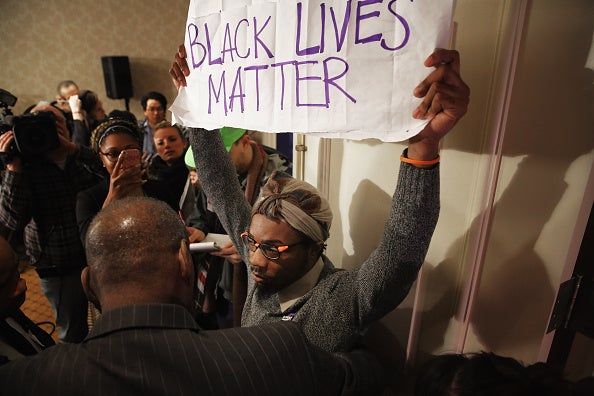Black History Month should be acknowledged every day of the year
As the US and Canada kick off the first Black History Month of 2016, why does it happen, and what exactly is it?

Your support helps us to tell the story
From reproductive rights to climate change to Big Tech, The Independent is on the ground when the story is developing. Whether it's investigating the financials of Elon Musk's pro-Trump PAC or producing our latest documentary, 'The A Word', which shines a light on the American women fighting for reproductive rights, we know how important it is to parse out the facts from the messaging.
At such a critical moment in US history, we need reporters on the ground. Your donation allows us to keep sending journalists to speak to both sides of the story.
The Independent is trusted by Americans across the entire political spectrum. And unlike many other quality news outlets, we choose not to lock Americans out of our reporting and analysis with paywalls. We believe quality journalism should be available to everyone, paid for by those who can afford it.
Your support makes all the difference.For those who don’t know, Black History Month (BHM) is a month dedicated to black history. Simple, right? Well, not really.
It is supposed to be a month that focuses on the history, experiences, and accomplishments of black people. A period, especially in school, to learn about what figures like Martin Luther King Jr., Rosa Parks, Malcolm X and many others have achieved.
This month, however, has always been somewhat problematic. Some people see it as ‘racist’, while others don’t think it’s appropriate to confine the history of black people and culture into one month. But both these views tend to ignore why it was created.
Initially Negro History Week, it was formed in 1926 by Historian Carter G. Woodson in response to American history. History at the point was very much restricted and only highlighted that of whites. So as a response, Woodson formed this week to create awareness and include the representation and achievements of blacks. Placed in the second week of February to coincide with the birthdays of Abraham Lincoln and Frederick Douglass. This would later extend to a month and be celebrated in other countries such as Canada and the UK (in October).
Woodson sought the teaching of black history was crucial in enabling the studying of race within society, and said: “If a race has no history, it has no worthwhile tradition, it becomes a negligible factor in the thought of the world, and it stands in danger of being exterminated.“
So is BHM as racist as some people argue? No. It was created as a response to a society dominated by white history, hence why there is no thing such as White History Month. Perhaps there would be if it was designed to make blacks appear as superior, but it doesn’t.
Okay, so no White History Month, what about Whiteness History Month? For those who don’t know, Portland Community College in the US recently proposed a Whiteness History Month. Designed to examine “race and racism through an exploration of the construction of whiteness,” the project is not a celebration, but rather an educational project.
Though the project has not been not set in stone, it has already gained immediate backlash. However, this backlash indicates that BHM does fail in one thing: discussing whiteness. Although not an aim of BHM, Whiteness History Month could then be ideal in dealing with the conflict and issues racism has caused.
Whiteness History Month is a live example of the positive impact BHM has in pushing the discussion of race and trying to integrate it into society. Yes, BHM is one month out 12, but this doesn’t mean it should be limited to just this one month. In the past, this had to be the case, but now black history is just as much a part of history as any other period or event. It cannot be wiped away and, not only should it be celebrated pretty much whenever, it should be acknowledge every day in national history.
Join our commenting forum
Join thought-provoking conversations, follow other Independent readers and see their replies
Comments